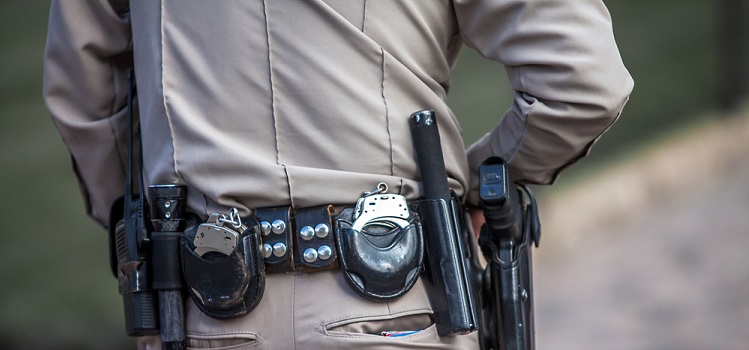Supreme Court Preview: Kansas v. Glover

When the justices return to the bench for the October 2019, a significant criminal law docket awaits them. One of the most closely-watched cases is Kansas v. Glover, which could dramatically alter drivers’ constitutional rights. The question before the Supreme Court is whether, for purposes of an investigative stop under the Fourth Amendment, it is reasonable for an officer to suspect that the registered owner of a vehicle is the one driving the vehicle absent any information to the contrary.
Facts of the Case
On April 28, 2016, during a routine patrol, Deputy Mark Mehrer of the Douglas County Sheriff’s Office saw a pickup truck. Although he had not “observe[d] any traffic violations,” he decided to run a license-plate check. The state database revealed that the truck was registered to Charles Glover, Jr., and that Glover’s driver’s license had been revoked. Based on that information alone, Deputy Mehrer initiated a traffic stop. During the stop, he identified the driver as Glover and issued him a citation.
Petitioner State of Kansas subsequently charged Glover with driving as a habitual violator. In response, Glover filed a motion to suppress the evidence arising from the traffic stop, arguing that the stop violated the Fourth Amendment because Deputy Mehrer did not have reasonable suspicion of unlawful activity.
The district court granted the motion to suppress. It found it unreasonable for an officer to assume—with no evidence or explanation—that the registered owner of the vehicle was also the driver of the vehicle, in part because there are many families with “multiple family members and multiple vehicles” where “somebody other than the registered owner often is driving that vehicle.” The court also noted that cases from other jurisdictions that have reached different outcomes had “other factors present that were not present in this case.”
The Kansas Court of Appeals reversed. It held that “a law enforcement officer’s knowledge that the vehicle owner’s license is revoked alone provides reasonable suspicion to initiate a vehicle stop,” as long as “the officer is unaware of any evidence or circumstances which indicate that the owner is not the driver of the vehicle.”
Finally, the Kansas Supreme Court reversed the Court of Appeals and reinstated the suppression order. It concluded that the State must provide “some more evidence” beyond the bare fact of a registered owner’s license revocation to show that an officer had reasonable suspicion for a particular stop.
Issue Before the Supreme Court
The Supreme Court has agreed to consider the following question: “whether, for purposes of an investigative stop under the Fourth Amendment, it is reasonable for an officer to suspect that the registered owner of a vehicle is the one driving the vehicle absent any information to the contrary.”
In its petition for certiorari, the State of Kansas emphasized that the Kansas Supreme Court’s decision that the stop violated the Fourth Amendment conflicts with 12 other state supreme courts, 13 intermediate state appellate courts, and 4 federal circuit courts, including the Tenth Circuit, which covers Kansas. Meanwhile, Glover contends that the Kansas Supreme Court got it right.
Glover is supported by several advocacy groups, includingthe Fines and Fees Justice Center, the Institute for Justice, and the Southern Poverty Law Center, the Cato Institute and R Street Institute, which joined together tofile anamicus briefurging the Supreme Court to declare the stops unconstitutional.“Permitting police officers to conduct suspicionless seizures of vehicles registered to owners with suspended licenses—without knowing who is actually driving—will invade the Fourth Amendment rights of millions of Americans, with little to no corresponding benefit to public safety,” their brief argued. “Kansas’s arguments ignore the reality of license suspension practices in the United States, and the dangers of suspicionless stops to drivers of color, particularly black drivers.” Oral arguments are scheduled for November 4, 2019.
Previous Articles
SCOTUS Decision in Bowe v. United States Is First of the 2026 Term
by DONALD SCARINCI on February 5, 2026
In Bowe v. United States, 607 U.S. ___ (2026), the U.S. Supreme Court held that Title 28 U.S.C. § ...
SCOTUS Rules State Can’t Immunize Parties from Federal Civil Liability
by DONALD SCARINCI on January 29, 2026
In John Doe v. Dynamic Physical Therapy, LLC, 607 U.S. ____ (2025) the U.S. Supreme Court held that...
Supreme Court to Address Racial Discrimination in Jury Selection
by DONALD SCARINCI onWhile the U.S. Supreme Court has concluded oral arguments for the year, it continues to add cases t...
The Amendments
-
Amendment1
- Establishment ClauseFree Exercise Clause
- Freedom of Speech
- Freedoms of Press
- Freedom of Assembly, and Petitition
-
Amendment2
- The Right to Bear Arms
-
Amendment4
- Unreasonable Searches and Seizures
-
Amendment5
- Due Process
- Eminent Domain
- Rights of Criminal Defendants
Preamble to the Bill of Rights
Congress of the United States begun and held at the City of New-York, on Wednesday the fourth of March, one thousand seven hundred and eighty nine.
THE Conventions of a number of the States, having at the time of their adopting the Constitution, expressed a desire, in order to prevent misconstruction or abuse of its powers, that further declaratory and restrictive clauses should be added: And as extending the ground of public confidence in the Government, will best ensure the beneficent ends of its institution.





